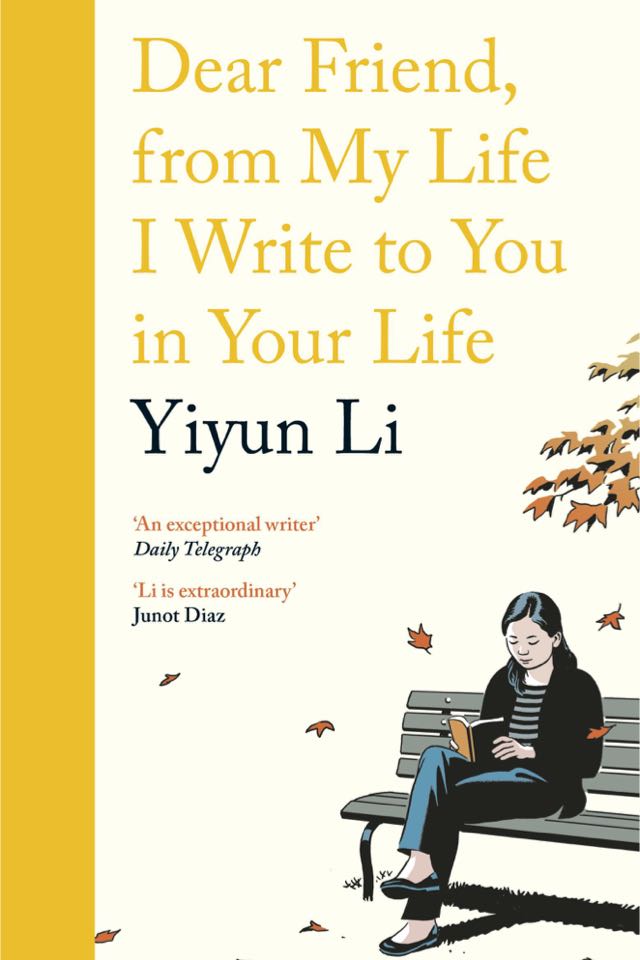Dear Friend, from My Life I Write to You in Your Life
— Alexandra d’Abbadie
Reading Dear Friend, from My Life I Write to You in Your Life is an education. It’s a creative writing course, on the possibilities of non-fiction, on literature, on literary criticism. Yiyun Li’s collection of essays is one that readers will go back to, time and time again.

When you think of autobiography or non-fiction, you think of firm statements about self: true events, real feelings, definite moments that are constructed with heightened affect. When these essays or books are good, you’re left rather shaken. When they are not—when the book has taken great care to manicure the self, to produce that triumphant well-made American film kind of feeling—you are left disappointed, annoyed at the inauthentic polish, at the arrogance of the person’s cemented self-definitions.
Li’s book has been described as an anti-memoir—yes, but it could also be seen as a triumphant apogee of the form itself: one that refuses to accept the self as anything solid, questioning everything. In the eponymous essay in the collection, she writes: I had this notion, when I first started writing this, that it would be a way to test—to assay—thoughts about time.
Assay, éssayer, essay—the form itself seems to demand attempts at comprehension, and not definitive answers to a question, for the definitive is false. I am not an autobiographical writer
she writes in ‘Amongst People’, one cannot be without a solid and explicable self […] What kind of life permits a person the right to become his own subject?
Unsurprisingly, Li hates the word ‘I’.
Dear Life examines what it is to live, to die, and delivers line after line of extraordinary wisdom. Loneliness is the inability to speak with another in one’s private language
(‘To Speak is to Blunder but I Venture’), A person, by dismissing her own self with a morbid carelessness, could easily bulldoze another person’s beliefs
(‘Amongst People’), A glimpse into the depth of other people’s misfortunes makes us cling to the hope that suffering is measurable
(‘Memory is a Melodrama from Which No One is Exempt’). They aren’t presented as final statements, but as things to be tested—an attempt to grasp at some kind of truth. And the attempt is all.
It is also a remarkable work of literary criticism. From Turgenev to Larkin to Moore, Li brilliantly analyzes letters and other non-fiction, examines these writers’ own dealings with autobiography and the way their lived lives find their way (or not!) into fiction and poetry. A particularly striking section is when she analyzes the construction of Sue Bridehead from Jude the Obscure—a character often thought to be modeled after Hardy’s own wife. She uses Larkin’s comment on Sue as starting point—Really too irritating not to have been a real person
—to examine what makes a character real: To say we know a person is to write that person off […] When characters forgo realness—their unknowability—they become real and known to a reader
(‘Amongst Characters’).
Li teaches us what it is to create, what makes the imaginary ‘real’. And in this sense, you get the impression that she’s continuing a tradition, a historical conversation of what it is to live.